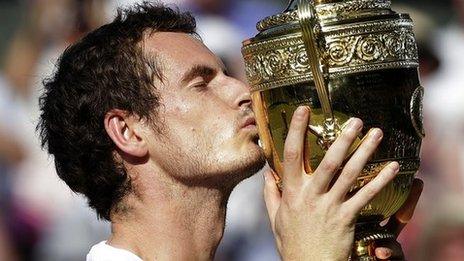Wimbledon 2014: Meet rising British tennis star Jordanne Whiley
- Published
'I broke my leg 26 times' - GB tennis star Whiley
The first time Jordanne Whiley played tennis was in Israel. She was three. Sitting by the court with a broken leg, she watched her beloved dad competing in a tournament and instinctively started to mimic him. Organisers soon thrust a racquet into her hands.
"My mum found it quite funny," recalls Whiley. "But by the time the tournament finished they'd given me a trophy and I was all over the news out there.
"A three-year-old in a wheelchair hitting tennis balls - they'd never seen it before. Ever since then I've been playing."
Raised near Birmingham, she was named after the American basketball icon Michael Jordan. But unlike the NBA megastar, the 22-year-old has never been able to run or jump.
Born with brittle bone disease, she has broken her legs more times than she can care to remember. Her mum thinks it's about 26. The first time it happened Whiley was just three months-old and her father Keith was gently winding her at the time.
Since then she has been in intensive care, had a series of rods and bolts put into her legs and heard doctors tell her she would never walk unaided. They were wrong - she can now. Along with dogged determination, what Whiley also has in common with her namesake is real talent.
Fuelled by winning the British national women's title at the age of 14, she went on to claim a Paralympic bronze medal at London 2012. Of even greater significance was earlier this year when Whiley made history by becoming the first British woman to win a Grand Slam wheelchair tennis title.
That ground-breaking Australian Open women's doubles triumph, however, went largely unnoticed. Unlike, say, Paralympic swimming or wheelchair racing, wheelchair tennis has a low profile.
Whiley finds this a little surprising, given Britain's love for tennis. But she hopes to help change that.
Success is the key to becoming the next David Weir or Ellie Simmonds and, with victory alongside Japanese partner Yui Kamiij at the French Open in Paris in June, a headline-grabbing Grand Slam clean sweep is becoming a distinct possibility.
Whiley has lost in the last two Wimbledon finals so is doubly determined to go one better at her favourite tournament. Should success be sealed on home soil, she and Kamiji will be the duo everyone is gunning for at the US Open.
"Winning all the Grand Slams would be amazing," says Whiley, whose partnership with Kamiji is ranked second, behind the previously all-conquering Dutch, in the doubles. "That's the aim for this year."
Beyond that goal she would like to improve her singles ranking, which is currently fifth, but Whiley is not convinced she could ever top the feeling of winning a Paralympic medal in London.
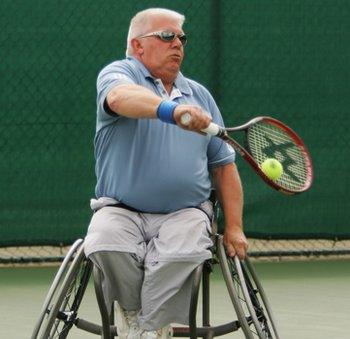
Jordanne's father Keith has always been an inspiration and role model for her
"The only thing that might be better is winning gold in Rio," she says. Already a countdown clock to the 2016 Paralympics is embedded in her tablet computer.
Though the Paralympics are a huge motivation for Whiley - especially as it offers the largest scale of exposure - the biggest driving force of all is her father Keith.
In an age when the Paralympics was almost unknown to the outside world, the design engineer won a bronze medal in the 100m sprint at the 1984 Paralympics, while also competing in other events such as wheelchair basketball.
Taking up tennis when he retired, his passion was quickly transmitted to his daughter.
"I've always been close to my dad," says Whiley. "Because he's got the same condition, he knows the excruciating pain that I can be in sometimes.
"And he's still a pretty cool dude. He just doesn't seem to get any older and he's got all the latest tennis gear."
Just as Keith is her hero, Whiley could easily go on to become an inspirational figurehead for a young generation of emerging athletes - disabled or otherwise.
Whiley admits she could have been a bit of a rebel had she not taken up sport, but is now wise beyond her 22 years and travels all over the world.
"I'm proof that you should never give up on your dreams. You can do anything if you put your mind to it," she says, smiling.
If you have a disability and want to get into sport, explore our dedicated page.
- Published12 June 2014
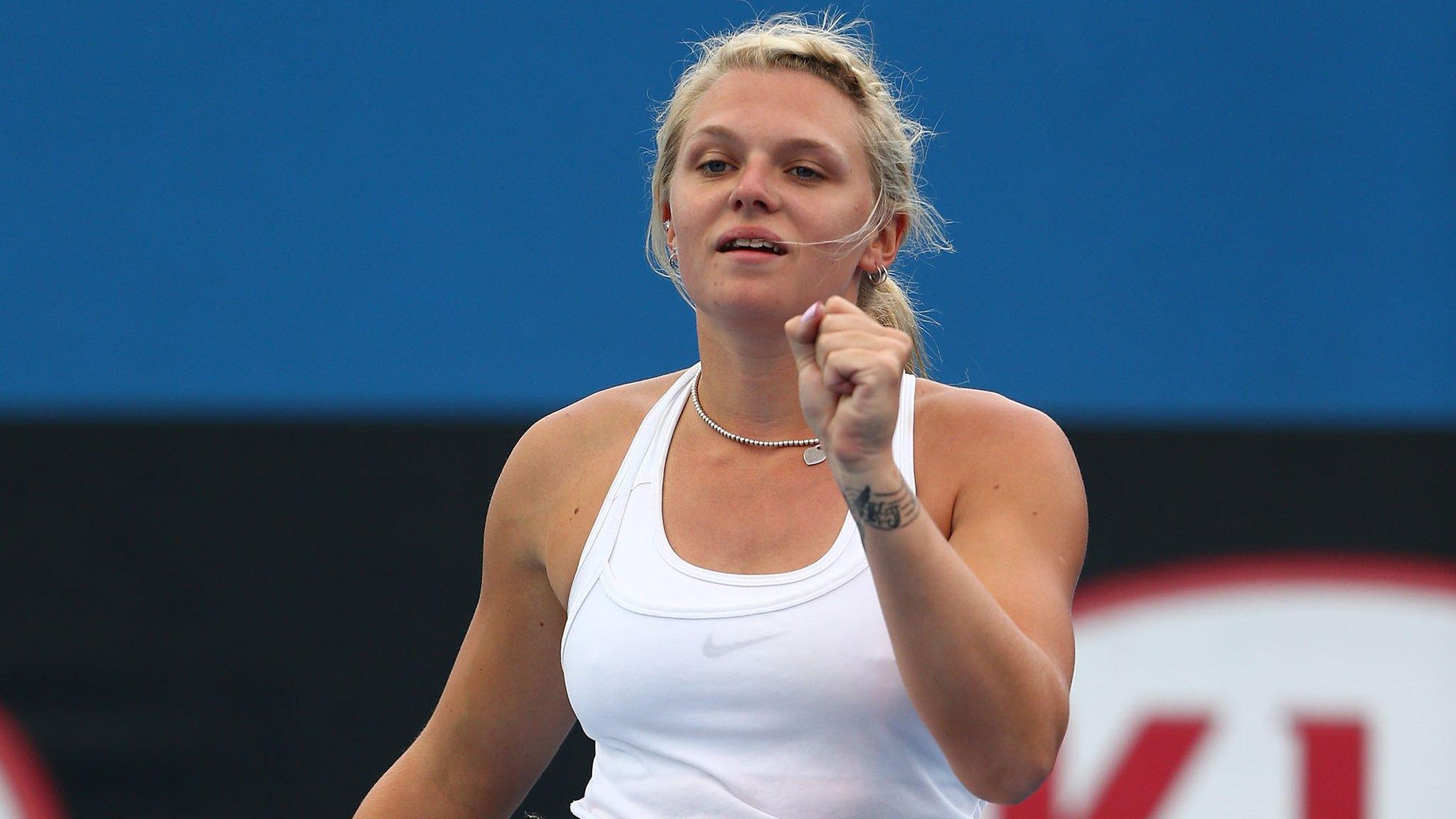
- Published24 January 2014
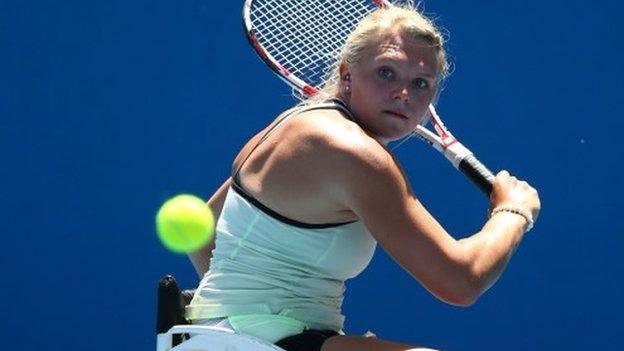
- Published17 June 2019
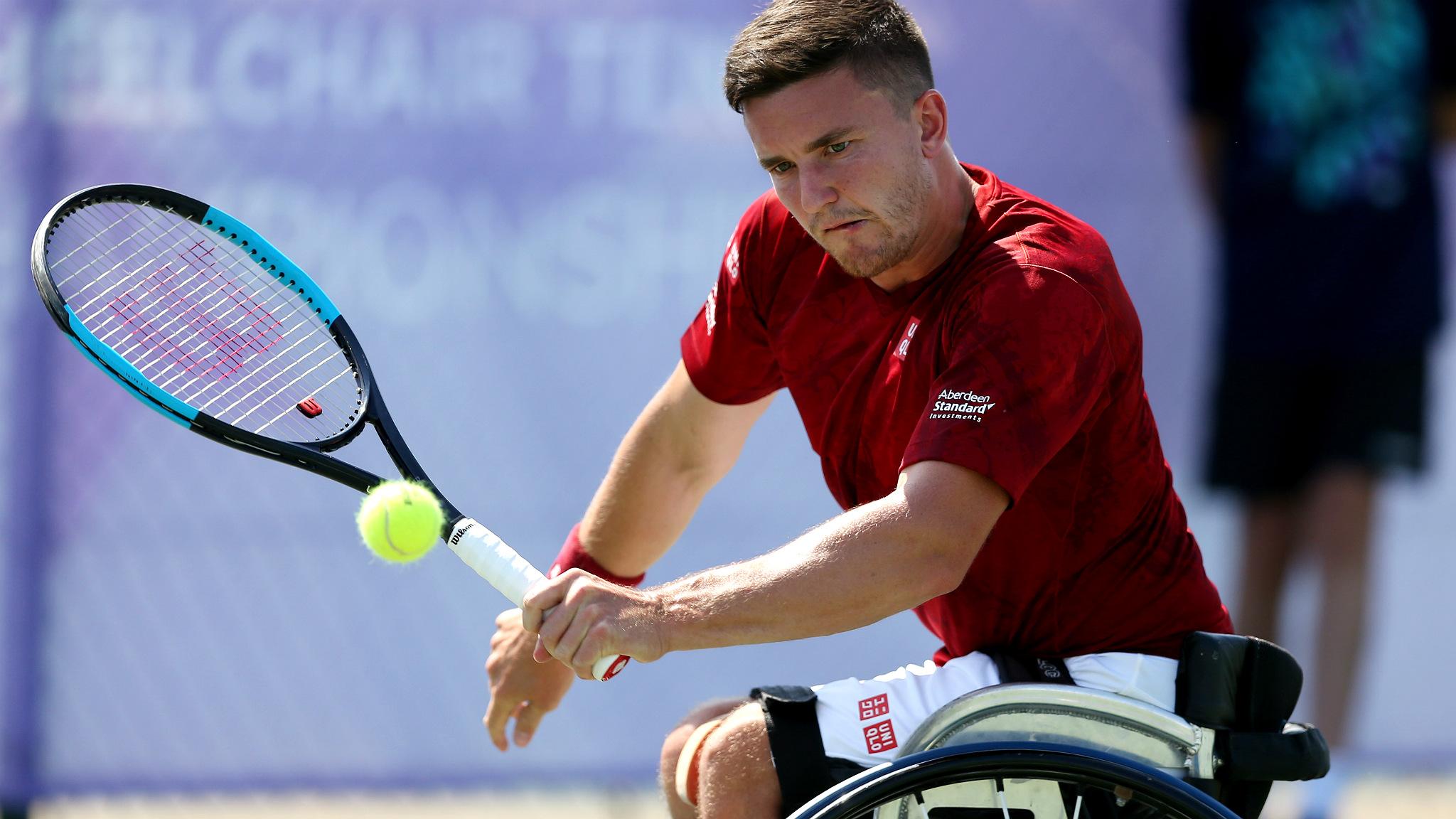
- Published22 June 2014
